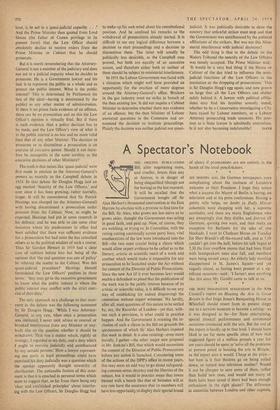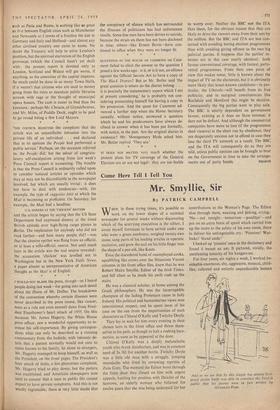THE MOST IMAGINATIVE SUGGESTION in the Arts Council's report on
Housing the Arts in Great Britain is that Inigo Jones's Banqueting House in Whitehall should revert from its present dingy use as a services museum to become a setting—as it was designed to be—for State entertaining, 'special musical performances and ceremonial occasions connected with the arts. But the rest of the report is hardly up to that level. I should have liked to see far more specific ideas of how that suggested figure of a million pounds a year for ten years should be spent to 'solve all the problems at present posed in housing the arts in Britain, as tid report says it would. Cheap at the price— but how is it that theatres go on being pulled down, or turned into television studios? Would it not be cheaper to save some of them, rather than build new ones, and would not many of them have been saved if there had been enough enthusiasm in the right places? The difference in amenities between London and other capitals, such as Paris and Rome, is nothing like so great as that between English cities such as Manchester and Newcastle and towns of a fraction the size in Germany and Italy and Holland—and almost any other civilised country one cares to name. No doubt the Treasury will help to solve London's problem, but the spiritual starvation of the English provinces (which the Council hasn't yet dealt with : the present report is devoted only to London, Scotland and Wales) will get worse, if anything, as the amenities of the capital improve. So much could be done in so many Town Halls, if it weren't that citizens who are used to money going from the rates to maintain public libraries scream with rage at the thought of municipal opera houses. The cash is easier to find than the keenness : perhaps Mr. Christie, of Glyndebourne, and Mr. Miles, of Puddle Dock, ought to be paid to go round biting a few Lord Mayors.







































 Previous page
Previous page